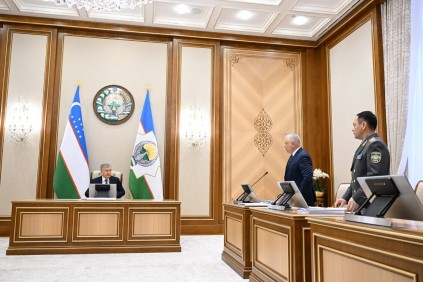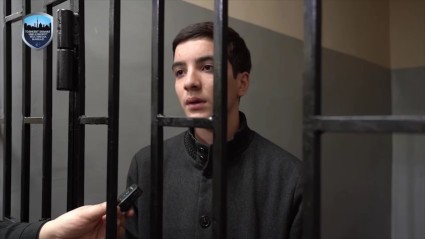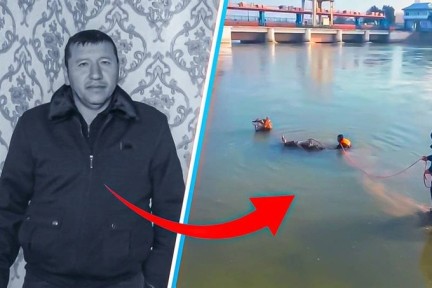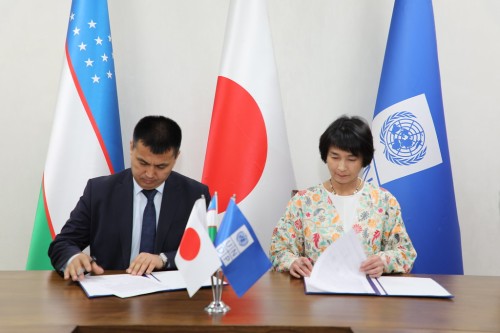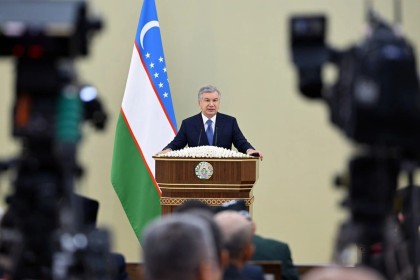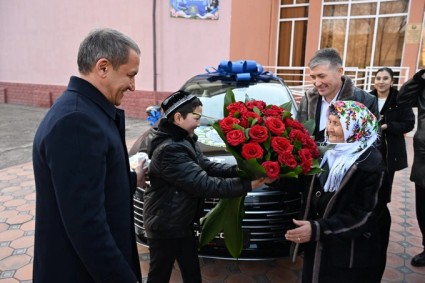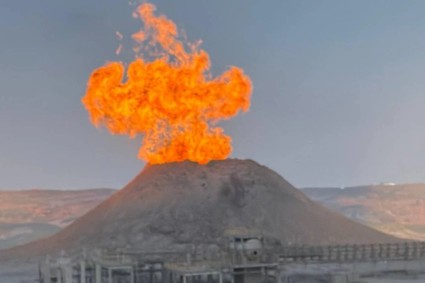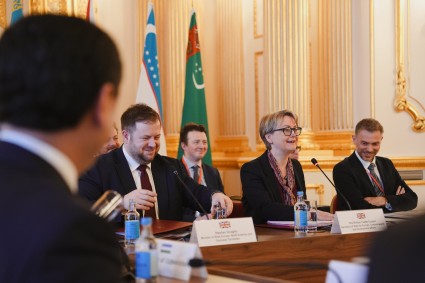The ministerial meeting in the EU-Central Asiaformat took place on November 22 in Dushanbe. The meeting was attended by the foreign ministers of Kazakhstan, Kyrgyzstan, Tajikistan, Turkmenistan, Uzbekistan and the EU High Representative for Foreign Affairs and Security Policy Josep Borrell.
The ministers discussed the ties between the European Union and the countries of Central Asia, the common security challenges, the ways to expand cooperation in the trade, investment, environmental areas, as well as deepening interregional connectivity.
On the sidelines of the ministerial meeting, Abdulaziz Kamilov also held talks with Josep Borrell and European Union Commissioner for International Partnerships Jutta Urpilainen.
According to the Uzbek Foreign Ministry, the parties exchanged views on international and regional issues, including the situation in Afghanistan.
“I am glad to meet with the Uzbek Foreign Minister Abdulaziz Kamilov to discuss the situation in Afghanistan, as well as the use of migrants by Belarus,” the head of European diplomacy wrote on Twitter following the meeting.
“We welcome Uzbekistan’s decision to restrict flights to Minsk for certain transit passengers and appreciate the timely response and closure of this new human traffic route,” Josep Borrell said.
At the end of the day, Josep Borrell and Jutta Urpilainen held a press briefing at the Tajik Foreign Ministry.
The EU Commissioner for International Partnerships briefed about the EU’s funding for initiatives in the region.
“Regarding the regional program for Central Asia, we have two priorities in which we mainly invest. The first is sustainability, encompassing water and energy, human rights, women's empowerment, law and civil society, peace and stability. The second priority of Central Asia's regional programs is prosperity, encompassing digital connectivity, entrepreneurship, regional trade and human development, ”she said.
Regarding aid to Afghanistan, the Commissioner recalled that the EU has mobilized a support package worth 1 billion euros for Afghans, as well as for neighboring countries. The package consists of several components. One of them is humanitarian aid worth 300 million euros. The second involves directly meeting the basic needs of the population in Afghanistan without recognizing the legitimacy of the Taliban or engaging with government agencies. The third component is support for the region, that is, the countries neighboring Afghanistan.
Joint statement
Following the ministerial meeting, a joint statement was adopted. In it, the parties called for enhanced cooperation to create opportunities for young people in the region, including increasing access to quality education for all, especially girls, and decent work. The European Union proposed the creation of a regional dialogue on the effective implementation of international labor standards.
The Ministers of the Central Asian countries expressed gratitude to the EU for its assistance in overcoming the socio-economic consequences of the COVID-19 pandemic.
“They particularly appreciated the EU's support in preparing a follow-up program for the region, which will focus directly on supporting the vaccination process. Participants emphasized their determination to work together to promote environmentally sound and sustainable recovery from the COVID-19 pandemic without leaving anyone behind,” the statement said.
Participants stressed the need to step up cooperation on sustainable interconnectivity between the EU and Central Asia in the fields of transport, energy, digital technologies and people-to-people contacts. Ministers welcomed Uzbekistan's offer to host an EU-Central Asia High-level Ministerial Conference on Connectivity in 2022.
According to the statement, the EU is encouraging progress towards meeting the Paris Climate Commitment and urged Central Asian countries to join the Global Commitment to Reduce Methane Emissions.
Ministers also welcomed Tajikistan's intention to host a water conference in June 2022. Tajikistan announced its intention to declare 2025 the International Year for the Conservation of Glaciers and set a specific date for World Glacier Day.
Participants expressed concern over the regional implications of the events in Afghanistan. They called for the promotion and observance of the human rights and fundamental freedoms of all Afghans, in particular women and girls, children and persons belonging to minorities, and for the establishment of an inclusive and open government. The foreign ministers stressed the importance of preventing the use of Afghan territory as a base for the deployment, financing or export of terrorism to other countries.
The ministers also pointed to the importance of expanding joint cooperation in providing humanitarian assistance to the people of Afghanistan. They recognized the need to strengthen cooperation to prevent unsafe and irregular movements of people, and to combat the smuggling of migrants and human trafficking.
The meeting participants expressed their hope for intensifying cooperation between the EU and Central Asia in the field of security and border management, as well as in the joint fight against terrorism, international organized crime, human trafficking, smuggling of migrants, illegal arms and drug trafficking and cybersecurity threats.
The ministers also proposed to the European Union to launch a new regional program for Central Asia on cooperation in the field of science, technology and innovation.


